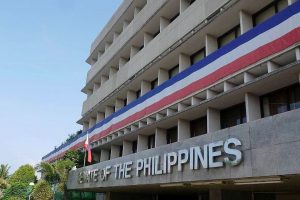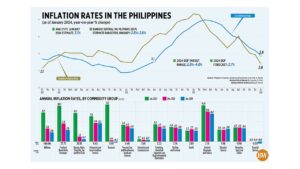BSP unwinds relief measure for banks

BIG BANKS would no longer be allowed to use loans to micro, small and medium enterprises (MSMEs) and large companies as alternative compliance with the reserve requirements (RR) starting July 1, the Bangko Sentral ng Pilipinas (BSP) said on Wednesday.
However, the BSP extended the relief measure for smaller banks, but only until the loans are fully paid but not later than end-December 2025.
In a statement, the BSP said it would start unwinding the temporary regulatory relief measure that allows lenders to use loans to MSMEs and large enterprises as an alternative mode of compliance with the reserve requirements.
The relief measure has been extended three times since it was implemented in April 2020.
“The unwinding of the relief measure is set to coincide with the reduction in the reserve requirement ratios by June 30, 2023 to facilitate the transition, supporting the banks’ continued compliance with the RR and managing friction costs related to the policy adjustment,” the central bank said.
The BSP is set to cut the reserve requirement ratio (RRR) for universal and commercial banks and nonbank financial institutions with quasi-banking functions by 250 basis points (bps) to 9.5% by June 30.
It will also cut the ratio for digital banks by 200 bps to 6%. Meanwhile, it will reduce the ratio by 100 bps for thrift banks, and rural and cooperative banks to 2% and 1%, respectively.
The reduction in RRR was intended to coincide with the expiration of the regulatory relief measure, ensuring stable domestic liquidity and credit conditions in the financial system.
Meanwhile, the BSP said thrift, rural and cooperative banks could still use outstanding loans to MSMEs and large enterprises as of June 30 to comply with the reserve requirements until the loans are fully paid, but not later than Dec. 31, 2025.
“The outstanding MSME and large enterprise (LE) loans of thrift, rural and cooperative banks that subsequently become past due or nonperforming, or are extended, renewed, or restructured, shall no longer be eligible as alternative compliance with the RR,” it said.
“Likewise, new MSME and LE loans that are granted by banks after the expiry of the relief measure shall not be eligible as alternative compliance with the RR,” it added.
During the pandemic, the BSP allowed banks to count their lending to pandemic-hit MSMEs and large enterprises as part of their alternative compliance with the reserve requirements.
Based on central bank data, banks lent P493.5 billion to MSMEs as alternative compliance with reserve requirements as of December 2022. This is 6.6% higher than the P463.1 billion a year earlier.
“The unwinding of the temporary relief measure will restore the use of the RR as an instrument for managing liquidity in the financial system in line with the BSP’s broader agenda of enhancing its liquidity management capabilities,” the BSP said.
“It will also simplify the administration of banks’ compliance with the reserve requirement.”
Reserve requirements refer to the percentage of bank deposits and deposit substitute liabilities that banks must set aside in deposits with the BSP that they cannot lend out.
The central bank will also offer 56-day securities on June 30, along with the auction of the 28-day debt, to mop up excess liquidity in the financial system. — Keisha B. Ta-asan



